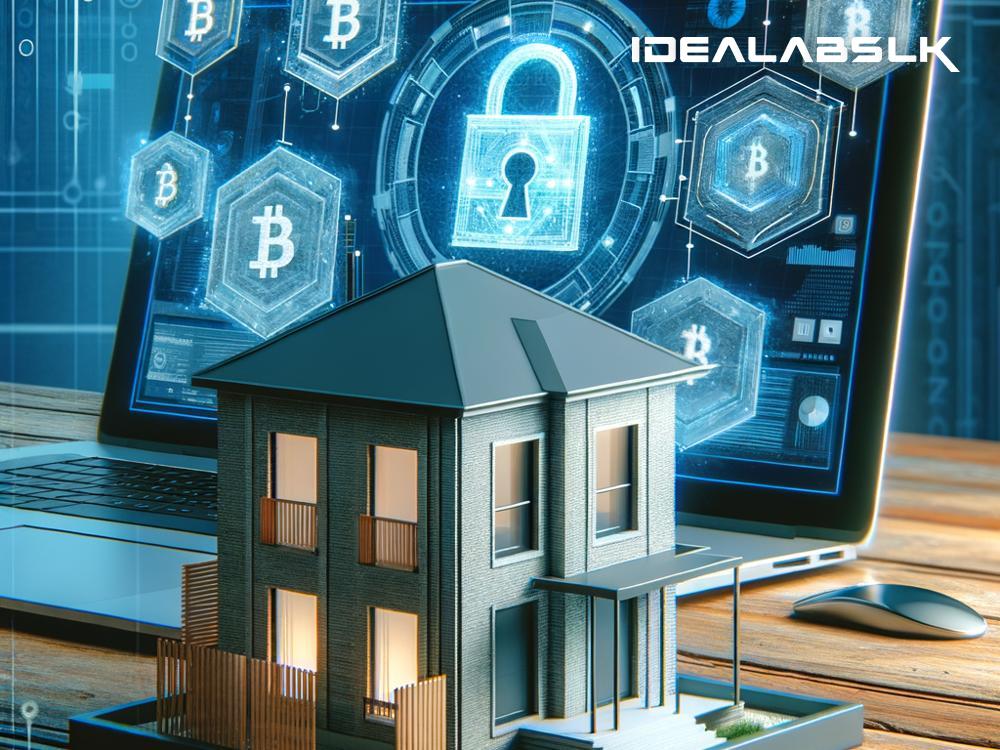The Game Changer: Blockchain in Real Estate Cybersecurity
In today's digital world, the real estate industry is not just about properties and locations anymore. It's also about massive amounts of data, online transactions, and, unfortunately, the potential for cyber threats. That's where blockchain technology comes into play, revolutionizing real estate cybersecurity with its innovative approach. But what is blockchain, and how is it the game changer in ensuring safer real estate transactions? Let’s break it down in simple English.
Understanding Blockchain: A Brief Overview
Imagine a system where transaction records are not stored in one single place but are distributed across a vast network. This system is called blockchain. It's like a digital ledger that is shared among numerous computers across the world. Every transaction or "block" is added to this ledger in a chronological order, creating a continuous "chain" of information that is nearly impossible to tamper with. Why? Because to alter information on one block, one would have to change the information on all subsequent blocks across all the distributed versions of the ledger, which is highly impractical.
Blockchain and Real Estate Cybersecurity
So, how does blockchain bring about a paradigm shift in real estate cybersecurity? Here are a few ways:
-
Enhanced Transparency: Transparency is paramount in real estate transactions, and blockchain offers just that. Since the transaction history is accessible and verifiable by all parties, it ensures a level of honesty and trustworthiness that was previously hard to guarantee.
-
Improved Security: Blockchain is incredibly secure. The way its data is structured—encrypted and distributed—makes it exceptionally resistant to cyber attacks. For cybercriminals, trying to manipulate blockchain records would be like trying to break into a multitude of highly secure vaults at once.
-
Smart Contracts: These are self-executing contracts with the terms of the agreement directly written into code. Imagine renting a property where the lease agreement, payments, and even access to the property are managed automatically and securely without a middleman. That's smart contracts for you, reducing the risk of fraud and errors.
-
Streamlined Transactions: Traditionally, real estate transactions involve a lot of paperwork and middlemen, which not only slows down the process but also opens up more avenues for cyber threats. Blockchain simplifies the process, making transactions faster, more efficient, and secure.
Real-World Implementation
You might wonder if blockchain in real estate is just theoretical. Not at all. Various startups and established companies are already integrating blockchain into their real estate transactions and management systems. For example, some platforms are using blockchain to facilitate property sales, allowing for seamless and secure transfer of property titles. Others are using blockchain to verify the identity of the parties involved in a transaction, reducing the risk of identity theft and fraud.
Overcoming Challenges
While blockchain presents a plethora of opportunities for enhancing real estate cybersecurity, it is not without its challenges. These include scalability, regulatory hurdles, and the need for a cultural shift towards embracing new technologies. However, as awareness grows and technology evolves, these challenges are gradually being overcome, paving the way for broader adoption of blockchain in real estate.
The Road Ahead
The integration of blockchain technology in real estate cybersecurity is still in its infancy but is rapidly gaining momentum. As we move forward, we can expect to see more innovative applications of blockchain, making real estate transactions not only more secure but also more efficient and transparent. The potential is enormous, and the journey has just begun.
In conclusion, blockchain technology is setting a new standard for cybersecurity in the real estate industry. By offering enhanced transparency, improved security, smart contracts, and streamlined transactions, blockchain is indeed the game changer that could redefine how we think about and engage with real estate in the digital age. The future looks promising, and as technology continues to evolve, so too will the ways in which we protect and manage our digital and physical assets in the real estate domain.

